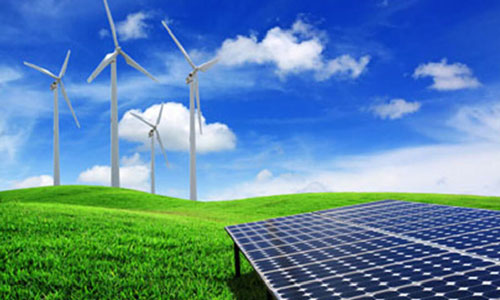Govt urged to go for renewables, announce Green Energy Policy
Zubair qureshi Islamabad
Long-term agreements with international power producers (IPPs) and the successive governments’ lack of political will are the main reasons behind Pakistan’s failure to adopt a Green Energy policy. Because of the current power crisis, prolonged heat waves and unusual climate patterns, the government, without wasting a single day, should come forward with a green energy policy advocating the use of renewables.
Energy experts and senior officials of the Ministry of Climate Change and power division expressed these views while talking to Pakistan Observer on Monday.
Our reliance on external energy sources like fossil fuel, gas, etc., is the primary source of the country’s current accounts deficit. They said that switching to green and clean energy will lessen that burden and significantly lower carbon emissions.
They said Pakistan is ranked one of the top 10 countries that are most adversely affected by climate change, and it is the right time that we should realize the gravity of the situation and minimize dependence on fossil fuels.
Unfortunately, Pakistan’s share of renewables in its total power mix is less than 4pc (excluding hydro with 15pc share). We have set an ambitious target of increasing power generation from the current 4pc clean sources to 20pc by 2025 and 30pc by 2030, and if achieved, 7GW power would be generated by 2030.
However, without basic regulations and plans, this target seems hard to achieve.
Afia Malik, an energy expert at the Pakistan Institute of Developing Economies (PIDE), viewed that our lacklustre approach to adopting renewables —hydro, wind, solar, biomass and nuclear—put us in the current mess. Today we are heavily reliant on fossil fuels, resulting in our circular debts. We are also emitting carbon (GreenHouse Gases or GHG) which damages the climate.
In Pakistan’s total electricity generation mix of 2021, 58pc comes from fossil fuels (out of which 21pc comes from coal), 30 pc was hydro, 9pc nuclear and the remaining almost 5pc were renewables.
Pakistan, she said, signed in the past ‘Take or Pay’ agreements with IPPs and guaranteed hefty payments whether we buy electricity from them or not. As a result, the country today faces the heavy burden of circular debts and is left with little option but to go for fossil fuel.
Besides the power crisis, our indifference towards climate change and environmental challenges has resulted in natural disasters like glacial melting, forest fires, flash floods and smog.
Fossil fuel, coal and gases are not only expensive sources of energy, but they also emit carbon that has a warming effect on the climate.
In our country, there is no concept of energy efficiency in the industrial sector, and almost 40pc carbon emissions come from industry.
Special Adviser, Denmark Energy Agency (DEA), Nadeem Nawaz, who is Denmark’s energy expert of Pakistan origin and visited Pakistan several times said his country looked forward to helping Pakistan in the green transition. “We, in fact, engaged the Pakistani officials and power and energy generation organizations in various capacity-building programmes.
He said that DEA was collaborating with Pakistan in energy planning, modelling, and scenario development.
In Denmark, he said, 50pc of the country’s electricity comes from renewables (wind, biomass, waste and solar) and by 2030 the country would reduce GHG by 70pc while by 2050 it will become a carbon-free nation.
According to Ambassador of Pakistan in Denmark, Ahmed Farooq, Pakistan and Denmark have reached an agreement for collaboration in green transition and very soon it will be signed in Copenhagen depending on the availability of Foreign Minister Bilawal Bhutto Zardari.










